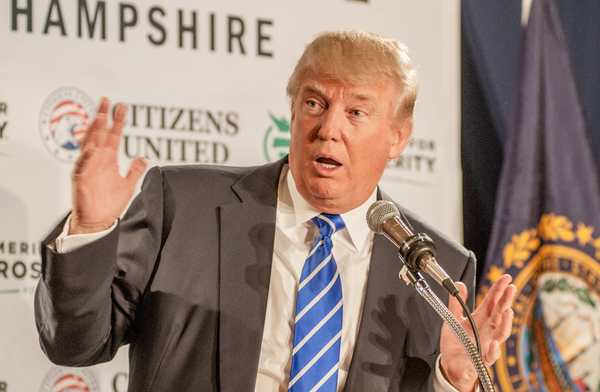The Local newsletter is your free, daily guide to life in Colorado. For locals, by locals.
The GOP debates Wednesday night on the CU Boulder campus are sure to offer some amusing and enraging political theater. What’s less certain is whether they’ll offer many concrete policy ideas for the future of our nation.
Like the rest of you, we’ll be watching it on TV. That’s because even though several 5280 staffers requested press access to the event, the debate organizers cited “overwhelming demand” in denying all of us. So Colorado’s largest monthly publication, with a print circulation of 85,000 and about a quarter-million web visitors per month, won’t be allowed inside. That’s a tough ticket.

(Before you start snarking about us being a liberal mouthpiece or sticking to food and neighborhood stories, read the magazine. We’ve covered local, regional, and national politics extensively for the past decade, including numerous lengthy and favorable stories about Republicans with Colorado ties.)
But it could be worse; we could be CU students who have to figure out how to divvy up the 150 tickets they were granted for the debate at the Coors Events Center. (The total capacity for the evening is 1,000, and the GOP bumped up the student allotment from 100 after some student groups raised a fuss.)
So what can we expect this time around? The latest polls have outsiders Donald Trump and Ben Carson far outpacing everyone else, to the enduring chagrin of the “establishment” GOP, if such a thing still exists. (Remember all that GOP hand-wringing in 2008 about Barack Obama’s tragic and terrifying lack of national leadership experience? Never mind.)
With Jeb Bush still flailing and Scott Walker back in Wisconsin, dismantling democracy, it’s gotten so disheartening for the party’s traditional wing that conservative commentator Ross Douthat just concluded his column supporting a Marco Rubio ascent with a winking plea for Mitt Romney to enter the race. Again.
(6 Places to Watch Wednesday’s GOP Debate)
Meanwhile, the third foundation-shaking outsider, Carly Fiorina, after being tabbed the consensus winner of the CNN debate last month, promptly disappeared and has garnered zero buzz since her triumph. Her national support now hovers around 7 percent, neck and neck with Bush and Rubio but far behind the frontrunners.
Among the gaggle of remaining candidates, Ted Cruz could still make some noise—and it’s the surest bet in politics that he will whether his colleagues like it or not—and John Kasich has a shot to present a (slightly) saner face of the GOP than some of his competitors have. But for now, anyway, sane isn’t selling.
We can expect Rand Paul to continue his quixotic libertarian crusade (which actually plays a bit in Colorado) and Mike Huckabee to hurl biblically inspired epithets at his foes. One highly anticipated highlight will be how Chris Christie addresses any marijuana-related questions, given that he’s basically promised to imprison the entire state of Colorado if he’s elected.
And in the junior varsity debate undercard, Bobby Jindal, Lindsey Graham, George Pataki, and Rick Santorum will try to explain why they’re still running. Seriously fellas, what’s the point?
In this upside-down election season, established political wisdom has evaporated so much that it’s anyone’s guess what might happen next, let alone what the GOP ticket will look like come August 2016. As the party currently residing outside the White House, these debates—this will be the third of 11 GOP primary tilts between now and March—should give Republicans ample opportunities to make a cogent and compelling case for why someone from their side should be our 45th president. Although the vast majority of these candidates’ policy proposals remain somewhere between vague and nonexistent, the sheer entertainment value of these televised scrapes has never been higher—and sadly, never more fitting.
Follow 5280 editor-at-large Luc Hatlestad on Twitter at @LucHatlestad.








